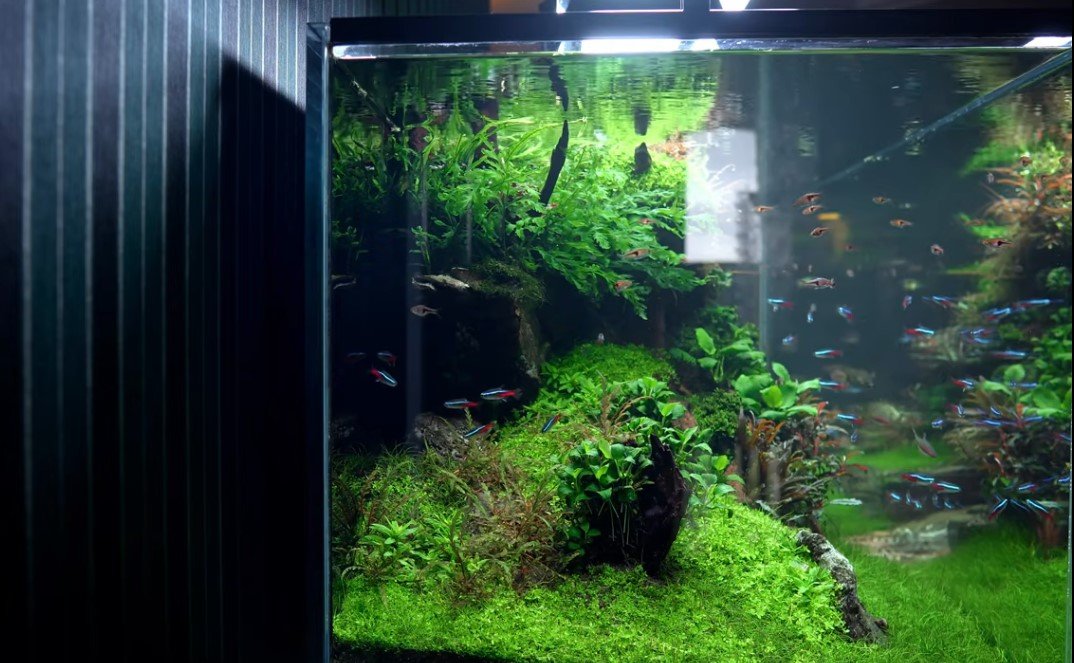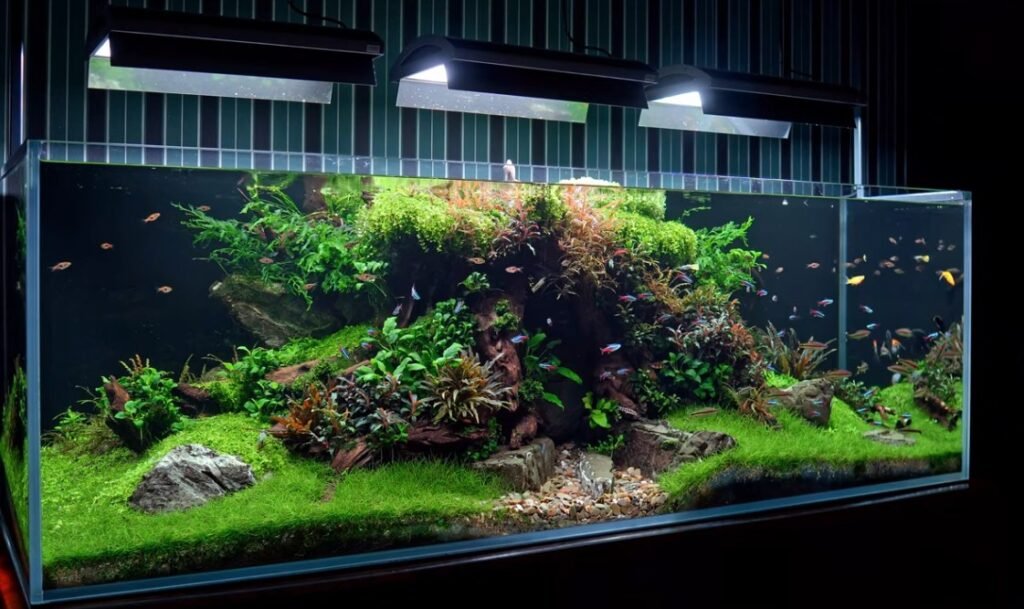If your fish tank smells like rotten eggs, it probably contains sulfur. Rotten eggs odor indicates the presence of Hydrogen sulfide Gas in the water tank, which smells like rotten eggs. Excessive sulfide formation is a sign that the fish tank is unhealthy, and you should take the appropriate action.

In most cases, cleaning the substrate/gravel is an effective way to deal with the issue. In addition, adequate filtration, improved water quality, and a few other necessary adjustments are useful in preventing excess formation of sulfide gas in the tank. Keep reading to find out more!
Why Is Your Fish Tank Smelling Like Rotten Eggs?
Given that hydrogen sulfide is the primary offender, the formation of hydrogen sulfide is the fundamental cause of the rotten egg smell.
Some level of Hydrogen sulfide occurs naturally, but that is not enough to produce odor. However, under specific conditions, Hydrogen sulfide Gas is produced in the tank.
When there is decomposition, insufficient water circulation, deposits of uneaten foods, and the decomposition of plants, the oxygen level tends to decrease in the fish tank.
If the oxygen level drops below the required amount,sulfate bacteria reduce sulfate (sulfur and oxygen) and convert it into hydrogen sulfide gas, which actually smells like rotten eggs.
Reasons Behind the Low Oxygen Level and the Active participation of Sulfate Bacteria
Hopefully, you get the main point. Let’s explore some of the common reasons behind the low oxygen level in the fish tank.
Lack of Water Movement
Water movement, or agitation, is a crucial process to increase the oxygen level in the aquarium. When there is lack of water ripples or agitation on the surface, less oxygen penetrates inside the tank.
On the other hand, when there is movement of the surface water, the more carbon dioxide is released from the water, and more O2 enters the tank. Sufficient oxygen is also helpful in reducing stress inside the aquarium.
So to oxygenate the tank, you need to ensure the aquarium is big enough and the water surface is large. Also, make sure the filter is working. If the filter is not up to mark, use a wavemaker.
Decomposition of Plants and Uneaten Food
If you feed them more than necessary, there will be more uneaten food left on the bottom. Decomposition also occurs due to fish waste and dead plants. When it starts happening, ammonia starts increasing, and oxygen level starts decreasing.
The process of decomposition requires more oxygen, which in turn reduces oxygen level inside the tank, creating ideal conditions for sulfate reducing bacteria to produce hydrogen gas.
The best course of action is to do a partial water change and clean the substrate. You can replace at least 25% of the water per week and dechlorinate the water.
More fish, More oxygen
Oxygen is a necessary element for a fish to thrive in the water. If you add more fish to the aquarium, more oxygen is required, which ultimately reduces the level of oxygen.
Also, more fish or living organisms means more poof or fish waste, thus more sulfate production will take place. So you need to ensure that Total number of fish is proportional to the size of the tank.
Elevated Water Temperature
This is another reason why oxygen level is not optimal. Usually, aquarium habitats need cold temperatures to thrive.
Water that is too hot cannot maintain an oxygen level. Depending on the size of the tank, you must take the appropriate action.
You can install a thermocool so the internal temperature does not go over the outside temperature.
This should be applied if the size of the tank is small. For larger tanks, apply some heat reflecting point available in your local shop.
How to Increase the Oxygen level and Reduce Rotten Smell?

There are a number of ways you can try to increase the oxygen level of your fish tank. Also, you can increase the water level temporarily or for the long term.
Temporary increase in Oxygen Level
- When filling the tank, pour water above the tank and from a decent distance, This increases the water’s aeration.
- Change large amount of water (up to 50%), that means more oxygenated water enters the tank
- Another easy ways to increasing oxygen is to move the water manually
- Use battery power air pump to move the water
Increase Oxygen Level for the Long Term
- Use Hang on back (HOB) filter to increasing the water agitation or movement
- Properly distribute filtered water, using spray bar
- Lastly, you can use air pump to release oxygen in the tank
How To Prevent Rotten Smell From Fish Tanks?
Maintenance is probably the best course of action to prevent smells from coming from your tank.
Cleaning glasses and substrate, removing dead organisms, ensuring smooth air, and changing water are some of the best ways to deal with smell issues.
In addition, here are some other things that you can do.
1. Do Not Provide Lot of Food in the tank
Overfeeding leads to decomposition and foul smell. It is important to note that you must calculate the amount of food required per day for the total number of fish in the tank. And, Remove food accumulated in the substrate.
2. Clean Rocks and Rinse filter
Below the rocks are the ideal place for fish poof, that is one of the main culprits behind the bad smell. Also there can be trapped gunk inside the filter.
You need to clean all the rocks and decorations, while making sure to rinse the filter to ensure no gunk remains inside it.
3. Number of Fish needs to be Proportional with the Tank size
As we have mentioned earlier, if you overcrowd the tank, the oxygen level will decrease and more waste will accumulate in the substrate, which makes the filtration difficult.
4. Avoid Water conditioners with Sulfur
Using a water conditioner is a common practice, but some of them might contain smelly sulfur ingredients. Make sure to get the conditioner that does contain such ingredients.
5. Maintain substrate
Substrate is an ideal place to smell rotten eggs. Maintaining substrate, like stirring sand or gravel, is the best possible way to prevent bad odors.
6. Test Elements
Excess levels of ammonia, nitrate, temperature, and pH are bad for the aquarium habitat and responsible for foul odor.
So it is best if you regularly check their level and ensure they are within the recommended range.
Final Words
There you have it. Hopefully the above discussion was helpful in preventing rotten egg smell from your fish tank. There can be different kinds of smells.
However, the rotten egg smell issue happens specifically due to sulfate bacteria reducing sulfate (sulfur and oxygen) and converting it into Hydrogen sulfide gas, which actually smells like rotten eggs.
So you need to make sure to prevent the formation of hydrogen sulfide gas in the tank.